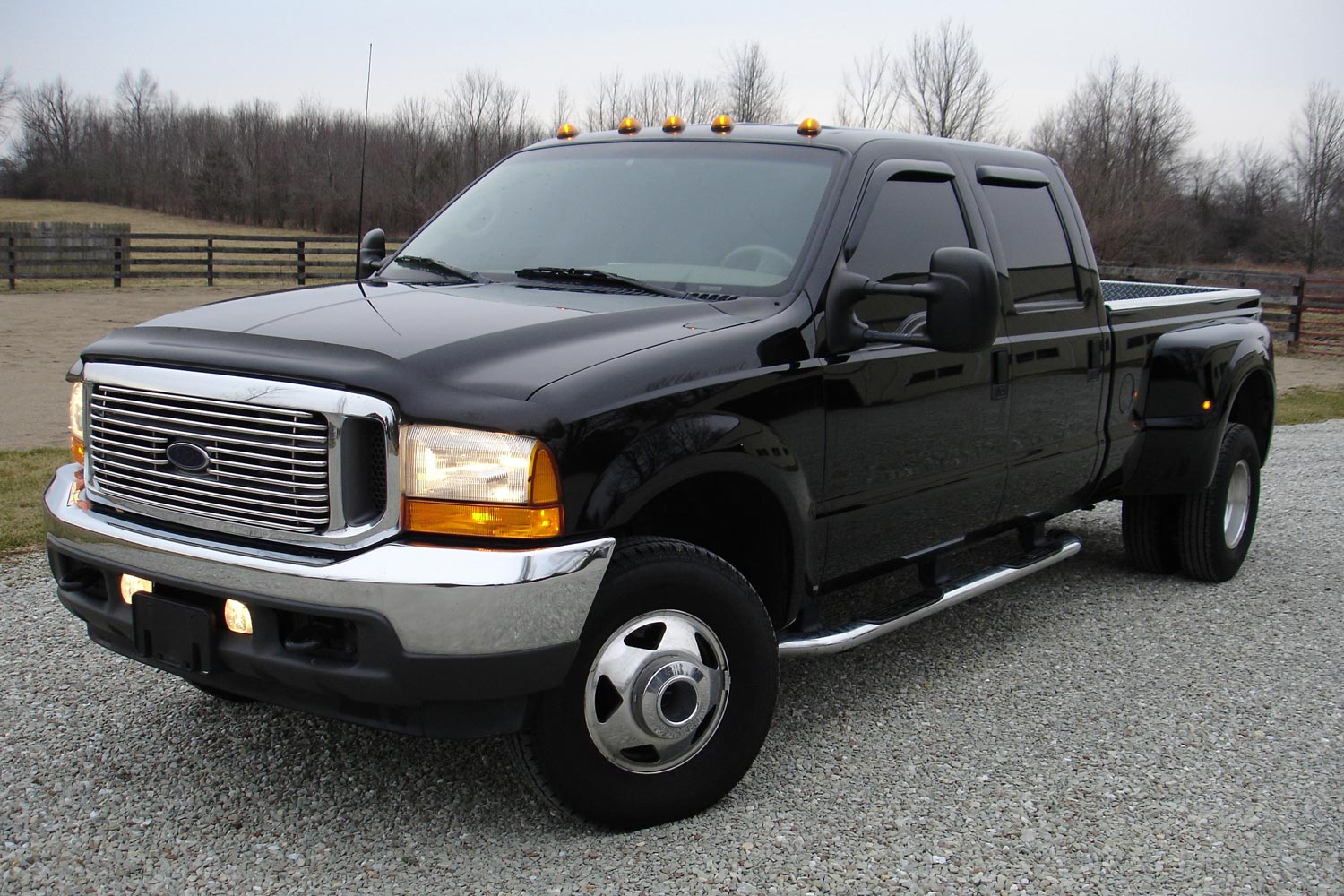How Many Miles Is Too Many for a Used Diesel Pickup Truck?
Diesel trucks can last well over 400,000 miles. But it takes a lot of maintenance and care to get there.
 Shutterstock
Shutterstock
Big, heavy-duty diesel commercial trucks, like the ones that transport goods all over the country, can last more than a million miles with proper care.
Smaller, medium-duty diesel pickup trucks used as daily drivers (or occasional haulers) can’t be expected to make it to a million miles—but with proper maintenance, they can last twice as long as their conventional gas-powered counterparts.
How Many Miles is Too Many for a Used Diesel Pickup Truck?
When considering used diesel pickup trucks, there is no hard and fast upper limit for mileage. Though an odometer approaching a half-million miles should give someone pause, there’s a lot of room beneath that figure. A poorly maintained truck could need a new engine after just 100,000 miles, while a meticulously maintained example could surpass 200,000 miles without replacing any major components. Each truck should be considered on its own merits, and by looking at a few key areas.
These are the three major issues you should consider when you’re looking at a diesel truck’s longevity.
Hours Idling and Miles Driven Are Both Key
Many diesel engines will spend countless hours idling. Whether it’s waiting to haul a load that goes to the family farm or using the truck as a commercial vehicle at a construction site, diesel vehicles are often left idling for a good part of their lives.
If a truck’s prior owner had the vehicle for a long time, you should ask how often it was left idling. Many diesel trucks monitor the hours of use along with the miles driven. Keep in mind that low mileage doesn’t necessarily equal low use. Every hour a diesel truck idles is equivalent to 30 miles of driving, and that idle time also puts strain on a diesel engine.
Many used diesel pickup trucks record hours of operation, which can be viewed, but generally not reset by owners, making it a good reference point. To determine if a pickup truck has spent more time idling or driving on the highway, you can divide the odometer miles by the number of hours operated. Consider roughly 30 miles-per-hour as the average: if the figure is lower, the truck has spent more time idling, and if the figure is higher the truck has likely spent more time on the highway.
Maintenance Is Important to Longevity
A diesel truck has much higher maintenance costs than a regular car, but neglecting those issues can make a diesel truck too expensive to repair at all—it’s important to act preventively despite the greater cash outlay if you want the vehicle to last.
Even a diesel truck’s tires, suspension components, and wearable items (such as brakes and filters) usually cost several times more than those parts would on a gas-powered family car, in part because diesel trucks are designed to withstand transporting large items weighing several tons.
That said, while most gas engines are intended to last at least 200,000 miles on average, a diesel truck that is well-maintained can potentially last 350,000 to 500,000 miles. Those used mainly for highway driving and carrying minimal loads will typically get closer to the top-end of the range.
Maintenance, idle time, and the health of the emissions system all have a significant impact on those miles. So make sure you do your research and get a professional vehicle inspection before buying your next used diesel truck.
Emission Systems Are a Heavy Cost
Diesel exhaust fluid became commonplace in 2010 with new emission regulations for diesel trucks. The urea and deionized water that make up DEF fluid are cheap, but the emission systems that rely on them can be incredibly expensive to replace. When these systems malfunction, the DEF-contaminated fuel can damage the engine and other expensive parts.
Replacement costs for the DEF systems in any of the big three truck-makers' medium duty pickups — Chevrolet, Dodge, and Ford — can run from $4,000 to $8,000, and even a DEF system cleaning can run between $1,000 and $2,000.
For example, the catalytic converters on a Ford F-350 can cost more than $3,500 to replace. The fuel systems of modern-day diesels can also be pricey—one of the reasons diesel-truck enthusiasts still like to use older vehicles with powertrains that don’t require these expensive systems.
A neglected emissions system can reduce a diesel truck’s longevity and seriously hurt your savings. When considering a truck, prospective buyers should verify (or have a mechanic verify) that not only is the DEF system operating properly, but also that it has been maintained properly, and that when repairs have been made, quality parts have been used.
Used diesel truck buyers who encounter a vehicle that’s had its emissions system removed, or “deleted”, should reconsider before moving forward with a purchase. Tampering with an emissions system is illegal across the U.S., and adding a system back could easily cost thousands.
Written by humans.
Edited by humans.
 Steven Lang
Steven LangSteven Lang is a special contributor to Capital One with nearly two decades of experience as an auto auctioneer, car dealer, and part owner of an auto auction. Some of the best-known auto publications turn to him for his expert insight. He is also the co-developer of the Long-Term Quality Index, a survey of vehicle reliability featuring over two million vehicles that have been inspected by professional mechanics.
Related articles
View more related articles